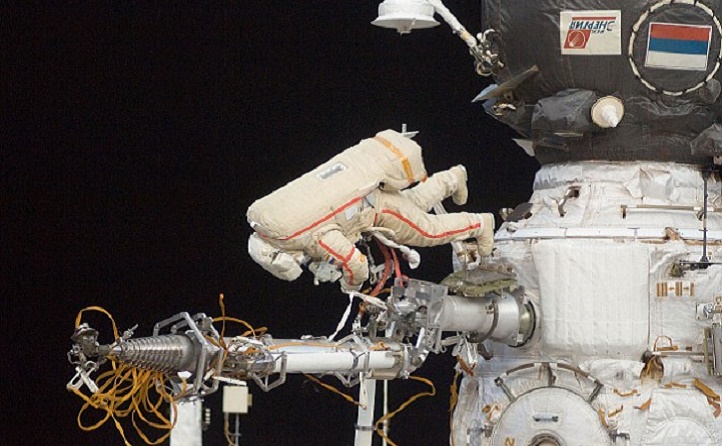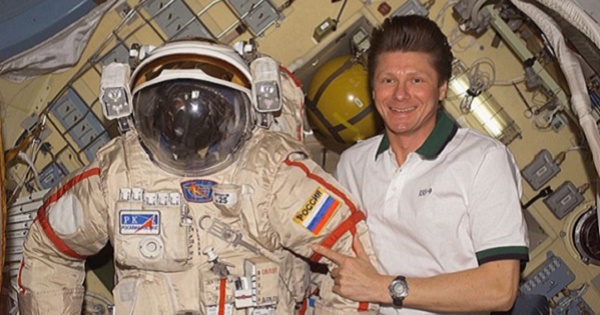What Are Exoplanets And How NASA Detects Life Beyond Our Solar System
Bharti Airtel Set To Acquire Telenor India Within This Year
Google Celebrates NASA’s Discovery Of Seven Earth-Like Planets With An Animated Doodle
Some Home Remedies That Might Sound Bizarre But Actually Work Like A Charm
Akshay Kumar Feels He Has Made Enough Money, Now Wants To Focus On Content & Characters
Delhi ATM Dispenses Fake Rs 2000 Notes From ‘Childrens Bank of India’ With ‘Churan Lable’
Adolf Hitler’s Personal Telephone During World War II Is Up For Auction In The US
From Salman Khan To Rekha, Neil Nitin Mukesh’s Wedding Reception Was Quite A Starry Affair
Meet Gennady Padlaka, The Russian Spacewalker Who Completed 804 Days In Space
We all love to swoon over sci-fi Hollywood blockbusters like Interstellar and Gravity. But do we know what it feels like to actually work in outer space? Here is the story of Russian cosmonaut Gennady Padalka, the commander of the current crew on board the International Space Station, who has broken the record for the longest time spent in space with 804 days. The 57-year-old former Russian Air Force officer beat the old record of 803 days, nine hours and 41 minutes set by fellow cosmonaut Sergei Krikalev (now retired) across six missions from 1998 to 2005.
And the rest, as they say, is history. Padalka, who has worked for both Mir (Russian Space Station) and International Space Station (ISS), has participated in nine space walks till date. He is a recipient of the Hero Star of the Russian Federation and the title of Russian Federation Test-Cosmonaut. He is also decorated with Fatherland Service Medal fourth class, Medals of the Russian Federation and a Medal of the International Fund of Cosmonautics support for Service to Cosmonautics.
But amidst all these spectacular laurels and marvelous achievements, lies another story which is not publicised as much. Frequent space travels pose a serious health risk to human bodies including back problems, osteoporosis (brittle bones), cancer and damage to nervous system.
Human body is accustomed to earth's gravitational pull which pulls our blood down into our legs and our hearts have to work hard to pump oxygen-rich blood to our brains. But in space, where there is low-gravity, bones lose mineral density and their blood flow reduces in volume. As a result, it becomes difficult for a human body to stand up straight on its own.
Travelling in space also affects takes a deep toll on the skeletons of the astronauts. Due to low-gravity, their spines lengthen up to as much as a few inches in such long missions. They are thus at a high risk of low bone density, osteoporosis and slipped disk.
That is not all. Due to prolonged exposure to radiation in space, the biggest risk that emerges from it is the development of cancer and damage of central nervous system.
But it seems that nothing can demotivate Padalka to put an end to his spectacular space odyssey. He aims to set a record of 1000 days in space.
Padalka is seen here performing a spacewalk on the ISS | Source: Daily Mail






